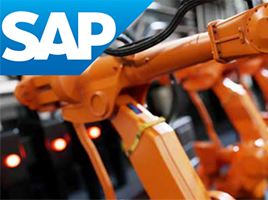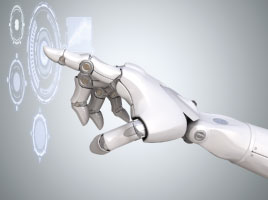The inception of new technologies and fierce competition in the market is providing impetus to the organizations to re-evaluate their ERP model. Traditional ERP systems do not provide the required flexibility and scalability for efficient business growth. On the other hand, modern ERP systems allow businesses to adopt a growth-centric approach by leveraging many recent technologies like artificial intelligence (AI), machine learning (ML), cloud services, and many others.

Modern ERP systems enable enterprises to execute their strategies effectively and provide flexibility to prioritize their growth plan over IT constraints. Cloud-based ERP systems offer excellent integration options and more flexibility to customize applications and improve usability. Here is a detailed analysis of the ways in which modern cloud-based ERP systems can be improved to bridge the gap with legacy ERP systems:
Self Learning Knowledge System: Enterprises grow when their ERP system is continually learning. Cloud-based ERP systems can quickly learn if it integrates ERP web services, apps, and real-time monitoring data to the AI and ML platforms. AI and ML platforms can provide meaningful insights with the analysis of this data. APIs also needs to be included to connect with the data of supplier and buyer systems.
Virtual Agents: Virtual agents like Siri, Alexa, and Cortana have the potential to redefine many business processes. These agents can be modified to streamline operations by offering contextual guidance and direction to complex tasks.
IoT data: IoT devices generate massive pipelines of structured and unstructured data. Modern ERP systems can capitalize this data stream by designing support at the data structure level. AI and ML tools can leverage IoT data to provide critical business information.
Overall Equipment Effectiveness (OEE): AI and ML techniques can utilize the IoT data from equipment for predictive analysis. This will provide meaningful insights into the performance of equipment. Real-time monitoring will allow the evolving ERP systems to provide much-needed information about the area for improvement.
Machine Learning Algorithms: ML tools use constraint-based algorithms to find patterns in diverse data sets. An analysis of these patterns will allow companies to understand the quality and delivery schedule performance levels of the suppliers.
Get 2019 ERP Pricing: 45 different ERP systems profiled including Epicor, Microsoft, SAP and more. Click to download your free guide.







